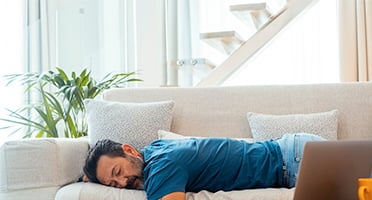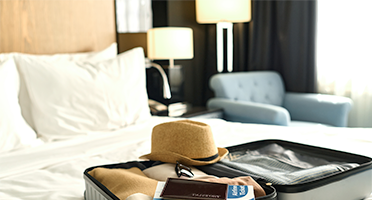
Whether you're staying home or heading out on a summer trip, it's important to understand how heat can mess with your sleep. When you don't sleep well, everyday tasks feel harder. You might feel groggy at work or too tired to focus, and that exhaustion can lead to daytime naps that make it even harder to fall asleep at night. It's a tough cycle to break. Add summer travel and hot weather into the mix, and sleep becomes even more of a challenge. In this post, we’ll break down common summer sleep issues, how to sleep better while traveling, and how conditions like obstructive sleep apnea may be making things worse.

June is Men’s Health Month—a time to raise awareness about the serious health risks men face. On average, men live five years less than women, partly due to higher rates of heart disease, cancer, diabetes, and mental health issues. As caregivers and providers, men often overlook their own health. This month, we’re highlighting one often-missed concern: sleep apnea.

Feeling tired all the time, even after a full night’s sleep? You might be suffering from sleep apnea. Discover how an at-home sleep test can help diagnose the root cause of your fatigue—and get you back to feeling like yourself.

Spring is here—and so is the pollen. For the millions dealing with seasonal allergies, the symptoms can be more than just annoying. And if you also have sleep apnea, those stuffy nights and restless sleep can get even worse.
Let’s take a closer look at how spring allergies and sleep apnea affect each other—and what steps you can take to sleep more comfortably.

Love can be fiery and passionate or sweet and steady—but snoring? Not so much. Whether you're in the honeymoon phase or years into your journey together, snoring can shake up a relationship. With Valentine’s Day around the corner, let’s take a fun look at how snoring can impact your love life.

New Year’s resolutions are made with the best intentions—hitting the gym, eating healthier, and committing to self-improvement. Millions of people dive in, signing up for memberships, filling their fridges with fresh produce, and stacking self-help books on their nightstands. But as the months go by, workouts slow down, nutritious meals are replaced with convenience foods, and those books remain unread. Why do so many resolutions fail? One major factor that often gets overlooked is sleep. Poor sleep can derail motivation and energy, making it harder to stick to your goals. Let’s explore how a sleep test could be the key to staying on track.
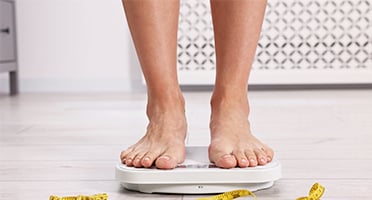

As 2024 draws to a close, it's the perfect time for both Medicare beneficiaries and those with private insurance to take a closer look at their health coverage and consider prioritizing their sleep health. Many people don't realize that they may have already met their annual deductible, opening up an opportunity for more affordable healthcare. At SleepTest.com, we want to help you take advantage of these potential savings while addressing your sleep concerns.
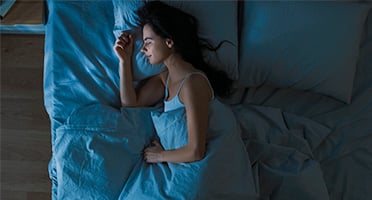
October is a month of awareness and action, particularly as we recognize Breast Cancer Awareness Month. Just as we shine a light on the importance of early detection and treatment for breast cancer, it's crucial to also address another silent struggle affecting many women: obstructive sleep apnea (OSA). OSA is a prevalent sleep disorder that affects millions of individuals globally, yet it often remains undiagnosed and untreated in women. At SleepTest.com, we are dedicated to raising awareness about this critical issue and empowering women to recognize the signs of sleep apnea. Understanding this condition is the first step toward reclaiming your health and improving your quality of life.

The world of wearable technology is making waves in sleep medicine, with Apple and Samsung at the forefront of innovation. These tech giants are now offering groundbreaking tools to detect sleep apnea, a common yet often undiagnosed sleep disorder. At SleepTest.com, we're thrilled to dive into these advancements and explore their potential impact on sleep health.
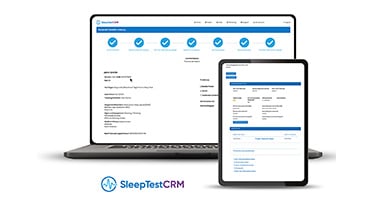
As a healthcare provider, offering patients convenient and accurate diagnostic tools is crucial for delivering high-quality care. When it comes to sleep apnea testing, SleepTest.com provides an excellent solution that can benefit both you and your patients. SleepTest.com provides streamlined patient care options that allow in-home testing, a solution more appealing to many people from start to finish.
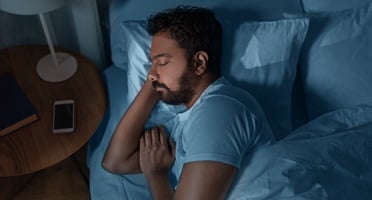
Sleep apnea is a common but often undiagnosed sleep disorder affecting millions of adults in the United States. An estimated 29.4 million American adults have sleep apnea, yet 80% remain undiagnosed and untreated.




